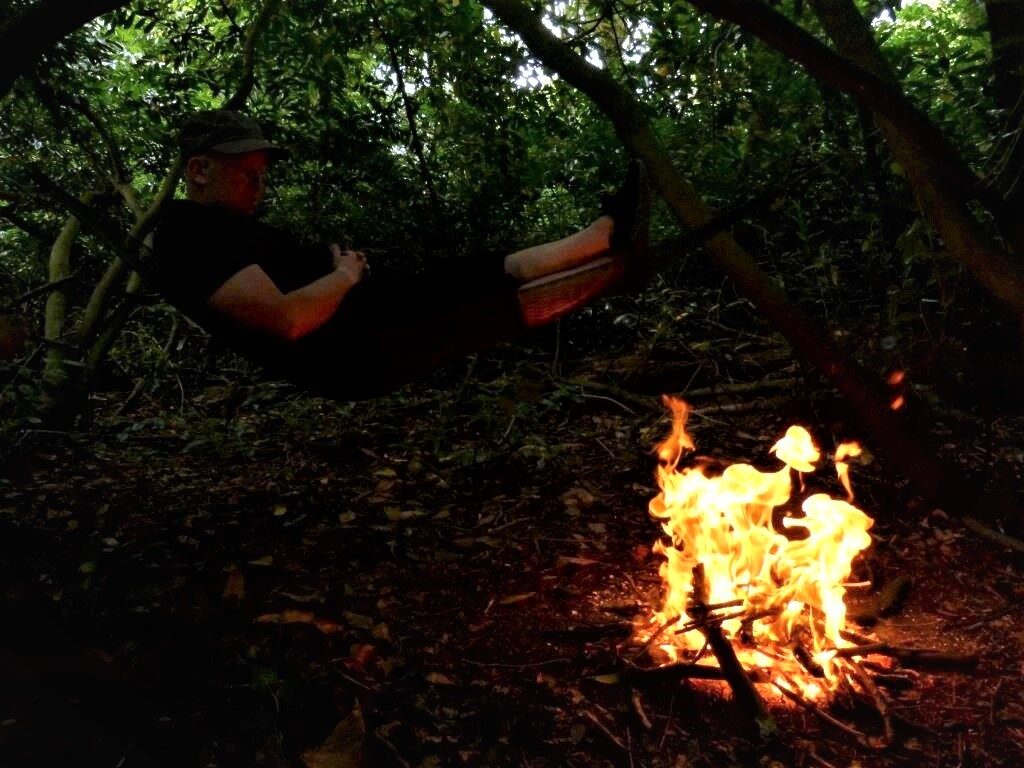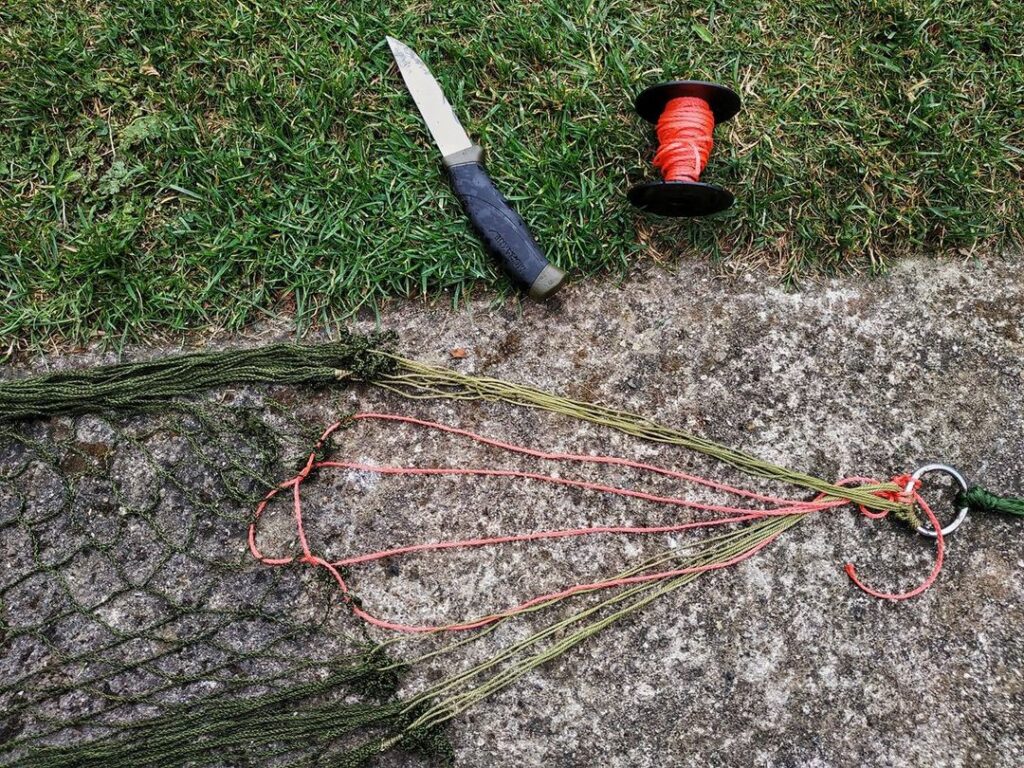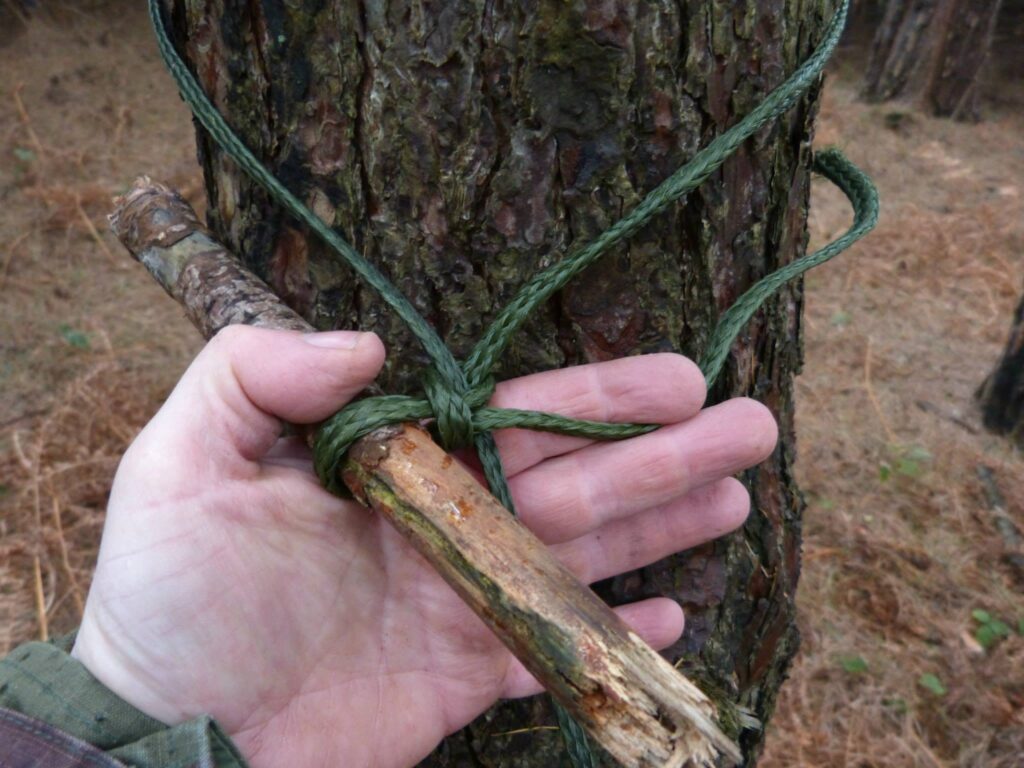By Sean Fagan

A Little Piece of Outdoor Luxury:
The Field Hammock
When it comes to wild-camping and bushcraft in general, hammocks can be roughly split into two categories: hammocks you sleep in - and hammocks you rest in (i.e. a field hammock).
In the following blog, I go into some key differences between the two types of hammocks as the above definition can seem contradictory ("Surely you can rest in a sleeping hammock and vice versa?").
What I also include are some of the alternative uses of my field hammock - some of which may surprise you...

Sleeping Hammocks:
Sleeping hammocks are generally larger and sturdier than field hammocks. When packed away, they are also considerably bulkier and heavier that field hammocks.
Unlike field hammocks, sleeping hammocks usually have a number of design features (such as an integral mosquito net and tarp) to facilitate a good nights sleep in various environments and weather conditions.
A field hammock however is a hammock stripped down to the bare essentials - so that it has a nice blend of lightness, portability and functionality.
Field Hammocks:
My field hammock is a net hammock - a simple, woven net of high quality string.
It's a little too small for sleeping in for long periods of time - but excels when used for resting or catching a nap during the day.
My field hammock is also very portable and can fit into my hand when packed up. It's very light too. I squeeze it into my day packs or my larger, camping rucksack - as it takes up very little space or weight.

What I use my field hammock for:
As with anything that you have to carry into the outdoors, it's a good idea to bring gear that has multiple uses.
Below is a list of most of the alternative uses I have for a field hammock.
- Resting above uneven, rocky ground.
- Resting above damp ground - one of the main reasons why I bring a field hammock during winter, as the ground is often too damp to sit on.
- Hammock seat - by attaching one end of the hammock much higher than the other end, you effectively have a hammock seat. With binoculars in hand - I can sit comfortably for long periods of time in a hammock - while waiting to observe wildlife. I also like to enjoy my campfire in a hammock seat.
- Storage - I often temporarily store camping & bushcraft items in my hammock for two reasons: it elevates my gear off damp ground and also makes my gear more visible (you'd be surprised how easy it is to lose stuff among ground vegetation).
- A back up bed. You never know whats going to happen in the outdoors - which can include losing or damaging your inflatable sleeping mat (the main way people sleep outdoors is in a sleeping bag, on top of an inflatable sleeping mat). Sometimes it's not possible to fix a punctured inflatable mat. Having a field hammock as a backup, to sleep on, is not the worst idea - you might not necessarily get the best nights sleep but you'll sleep.

While sleeping in a hammock, with the touch of a warm wind we remember why we are in love with the life!
Mehmet Murat ildan
As the above quote highlights - there is something deeply relaxing about gently swaying in a hammock - with the light above flitting through a trembling canopy of trees.
Try it.
Related Blogs on this Website:

Recent Comments